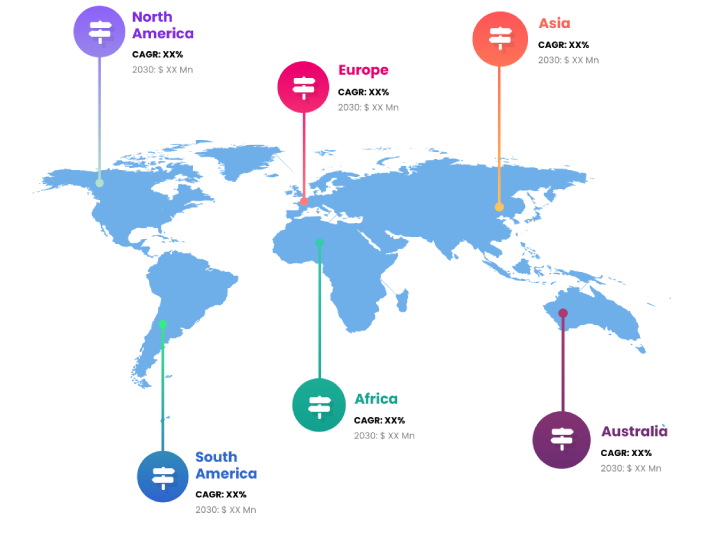The telecommunication cloud is a next-generation network design that incorporates software-defined networking, network function virtualization, and cloud-native technologies into a distributed computing network. This architecture is also referred to as the "cloud" in the context of cloud computing. Because the network and computing resources are dispersed across multiple locations and clouds, automation and orchestration are very necessary. The installation of a virtualized and programmable network infrastructure that makes use of automation and artificial intelligence is the next step in this process. In addition to this, it entails the implementation of innovative cloud business strategies that involve the modification of network infrastructure. Some of the trends in worldwide telecom cloud computing include the rapidly increasing digital transformation across industries, the huge increase in data consumption, and the increased prevalence of the internet and mobile devices.
Even during the height of the epidemic, the major factors that drive the market were able to keep its value stable. Massive amounts of data were consumed, which resulted in a rise in the demand for telecom cloud services as more people stayed inside their homes during the lockdown and more businesses favoured flexible working arrangements. Because the telecom cloud industry is able to produce demand even in adverse conditions, the global economy will experience exponential growth as a direct result of this market.
Because numerous companies operating in the telecom cloud market are concentrating on elevating the level of privacy standards, it is anticipated that the private cloud segment would develop at the quickest rate compared to the other segments. The market for private clouds has expanded as a direct result of the rapid development of new technologies. In addition, the expansion of services and applications that run on the internet, such as social networking, video streaming, and online payment systems, has raised the demand for safe data storage. In addition, an increase in data volume in industries such as banking, finance, and securities, information technology and telecommunications, healthcare, and retail, as well as the government, has prompted these industries to utilise private cloud services, which has contributed to the expansion of the market. The study focuses on the growth opportunities, industry insights, and restraints associated with the telecom cloud market. This study presents a Porter's Five Forces analysis of the telecom cloud industry. The purpose of this analysis is to gain a better understanding of the impact that various factors have on the telecom cloud market analysis. These factors include the bargaining power of buyers, the competitive intensity of competitors, the threat of new entrants, and the threat of substitutes.
The evolution of the telecommunications industry away from outmoded landline services and towards cutting-edge cloud computing platforms is referred to as the "telecom cloud" transition. The shift towards cloud computing enables enterprises to make more efficient use of the resources provided by networking. Cloud computing, when used in conjunction with telecom cloud infrastructure, can assist businesses in optimising their use of information technology. The shift towards cloud computing enables enterprises to make more efficient use of the resources offered by networking. The implementation of a network architecture that is virtualized, programmable, and enhanced with artificial intelligence is a recent advancement. Another component is the use of innovative cloud business strategies that change the architecture of the network. Increasing numbers of people are using the internet and mobile devices, and more and more companies are moving quickly towards a digital infrastructure. These are some developments in the telecom cloud.
The rollout of 5G has hastened the transition to digital operations within the telecommunications sector, which is currently seeing the onset of the fourth industrial revolution. Rapid advances in bandwidth have made it possible for telecom carriers to provide greater services to end users. 5G wireless promises to expedite this process even further. Many businesses are switching to using private clouds in order to make their operations more effective as a direct result of the large surge in 5G that has been brought about by the upgrading of mobile network infrastructure. Deutsche Telekom, a company that provides telecommunications services, has decided to implement VMware's telco cloud in order to modernise its network and build a virtual radio access network (vRAN) platform that is compatible with both LTE and 5G networks.
When considering the use of cloud computing for telecom purposes, it is necessary to address issues such as portability, which are caused by the cloud. Cloud providers each offer their own distinctive range of products and services, and one of their primary objectives is to simplify the process of switching between cloud providers. The most significant challenge arises when the cloud is enabled in PaaS, which is comprised of three distinct parts: the platform, the infrastructure, and the administration. PaaS is composed of a number of levels. When a company uses PaaS, they are not aware of the physical properties that are used in their utilisation because PaaS hides this information from them. This puts a limit on what can be done. Additionally, the physical location of the application deployment is another important consideration. When the porting is finished, there is a possibility that the data will be overwritten.

Report Coverage
Global Telecom Cloud research report categorizes the market for global based on various segments and regions, forecasts revenue growth, and analyzes trends in each submarket. Global Telecom Cloud report analyses the key growth drivers, opportunities, and challenges influencing the global market. Recent market developments and Telecom Cloud competitive strategies such as expansion, product launch and development, partnership, merger, and acquisition have been included to draw the competitive landscape in the market. The report strategically identifies and profiles the key Telecom Cloud market players and analyses their core competencies in each global market sub-segments.
| REPORT ATTRIBUTES | DETAILS |
|---|---|
| Study Period | 2017-2030 |
| Base Year | 2022 |
| Forecast Period | 2022-2030 |
| Historical Period | 2017-2021 |
| Unit | Value (USD Billion) |
| Key Companies Profiled | AT&T Inc., BT Group PLC, Verizon Communications Inc., Level 3 Communications Inc., Telefonaktiebolaget L.M. Ericsson, Deutsche Telekom, and NTT Communications Corporation |
| Segments Covered | • By Product |
| Customization Scope | Free report customization (equivalent to up to 3 analyst working days) with purchase. Addition or alteration to country, regional & segment scope |
Key Points Covered in the Report
- Market Revenue of Telecom Cloud Market from 2021 to 2030.
- Market Forecast for Telecom Cloud Market from 2021 to 2030.
- Regional Market Share and Revenue from 2021 to 2030.
- Country Market share within region from 2021 to 2030.
- Key Type and Application Revenue and forecast.
- Company Market Share Analysis, Telecom Cloud competitive scenario, ranking, and detailed company
profiles. - Market driver, restraints, and detailed COVID-19 impact on Telecom Cloud
Market
Competitive Environment:
The research provides an accurate study of the major organisations and companies operating in the global Telecom Cloud market, along with a comparative evaluation based on their product portfolios, corporate summaries, geographic reach, business plans, Telecom Cloud market shares in specific segments, and SWOT analyses. A detailed analysis of the firms' recent news and developments, such as product development, inventions, joint ventures, partnerships, mergers and acquisitions, strategic alliances, and other activities, is also included in the study. This makes it possible to assess the level of market competition as a whole.
List of Major Market Participants
AT&T Inc., BT Group PLC, Verizon Communications Inc., Level 3 Communications Inc., Telefonaktiebolaget L.M. Ericsson, Deutsche Telekom, and NTT Communications Corporation
Primary Target Market
- Market Players of Telecom Cloud
- Investors
- End-users
- Government Authorities
- Consulting And Research Firm
- Venture capitalists
- Third-party knowledge providers
- Value-Added Resellers (VARs)
Market Segment:
This study forecasts global, regional, and country revenue from 2019 to 2030. INFINITIVE DATA EXPERT has segmented the global Telecom Cloud market based on the below-mentioned segments:
Global Telecom Cloud Market, By Deployment
Private
Public
Hybrid
Global Telecom Cloud market, By Application
Cloud migration
Traffic management
Network
Data storage
Computing
Global Telecom Cloud Market, By Services
Software as a service
Platform as a service
Infrastructure as a service
Global Telecom Cloud market, Regional Analysis
- Europe: Germany, Uk, France, Italy, Spain, Russia, Rest of Europe
- The Asia Pacific: China,Japan,India,South Korea,Australia,Rest of Asia Pacific
- South America: Brazil, Argentina, Rest of South America
- Middle East & Africa: UAE, Saudi Arabia, Qatar, South Africa, Rest of Middle East & Africa
You will get in-depth and extensive telecom cloud market market research and competitor analysis for your business to help you develop more profound insights into the telecom cloud market Market.
Through INFINITIVE Data Expert is a professional Market Research services, I will identify the telecom cloud market market size, demand & opportunities, growth rate, and target audience with a comprehensive analysis of your competitors.



